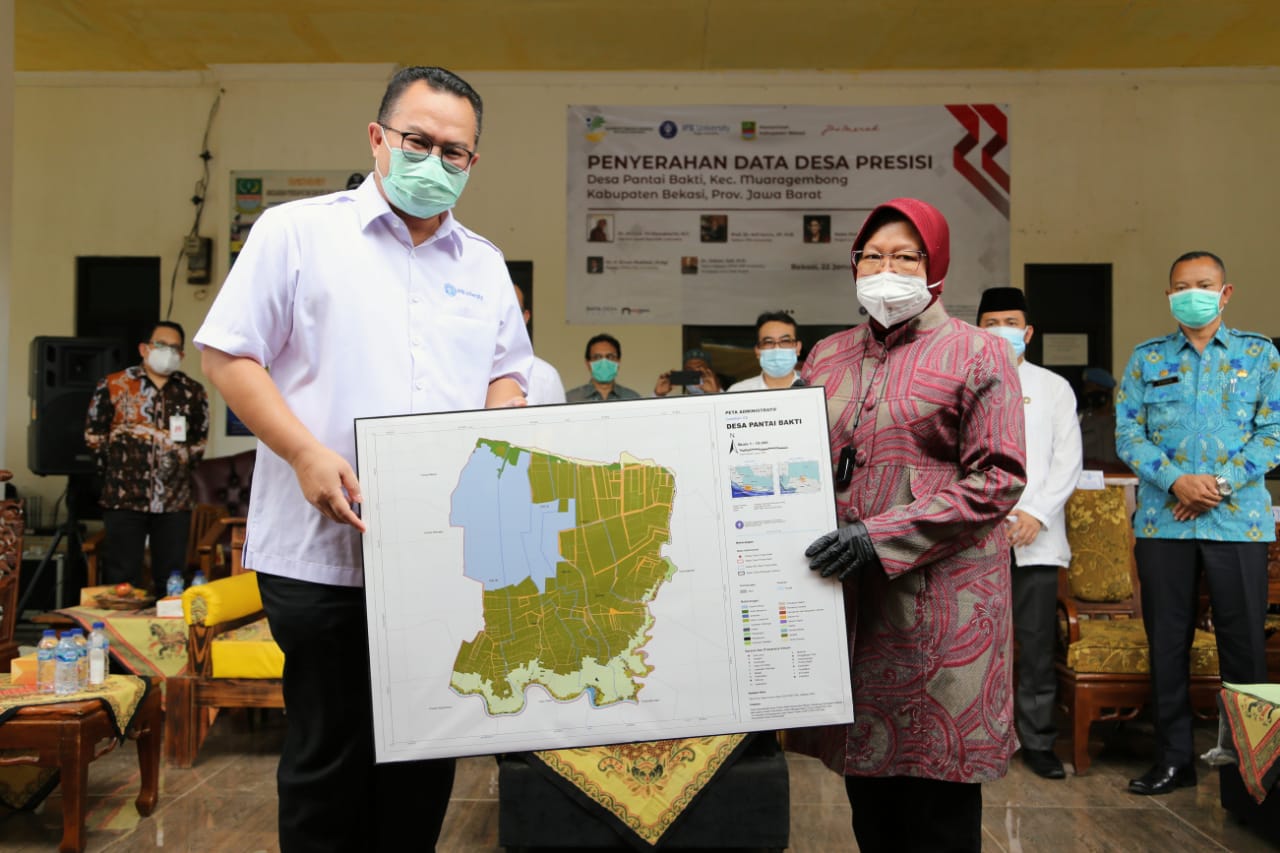Receives Precision Village Data from IPB, Social Minister Hopes Poverty Data is More Accurate

BEKASI (January 23, 2021) - Institute for Research and Community Service
(LPPM) Bogor Agricultural University (IPB) submitted Precision Village Data to
the Ministry of Social Affairs. Submission of data is part of efforts to
improve the accuracy of poverty data by involving community participation in
this case from elements of universities.
The data submission ceremony was carried out by the
Rector of IPB Prof. DR. Arif Satria to the Minister of Social Affairs Tri
Rismaharini at the Pantai Bakti Village office, Muaragembong District, Bekasi
Regency (22/01/2020). In his remarks, the Minister of Social Affairs stated
that although data is the authority of the center, innovation space remains
open to strengthening efforts to accelerate poverty reduction and improve services
to the community.
"Development programs in all lines of life
will be effective, targeted, accountable and transparent if they are supported
by a reliable database and can be accounted for by research results," he
said during the Submission of the Results of Activities to Build Precision
Village Data in Collaboration between LPPM IPB and Pantai Bakti Village
Government, Muaragembong District, Bekasi Regency.
Precision Village Data has a high level of accuracy
and precision to provide an overview of the actual village conditions. This
data is taken, validated, and verified by the village government, village
officials, village communities assisted by parties outside the village, namely
LPPM IPB.
"This Precision Village Data is an innovation
that in the future will end data polemics," he said. Risma added that with
the Precision Village Data, it is hoped that the distribution of aid will be
more targeted.
Information regarding the number of families, the
number of residents, and the like will be completed following the
reality on the ground. According to him, the Ministry of Social Affairs is
given the authority to provide a single piece of data that will be used by all
ministries and state institutions to support social welfare development.
The Minister of Social Affairs stated that the
process of updating poverty data opened the involvement of the smallest
government units such as villages and sub-districts. Even now, villages and
sub-districts can submit data corrections in the first week of January 2021,
every Monday-Wednesday, when a meeting is held regarding data correction from
the regions.
 English
English
 Bahasa
Bahasa
